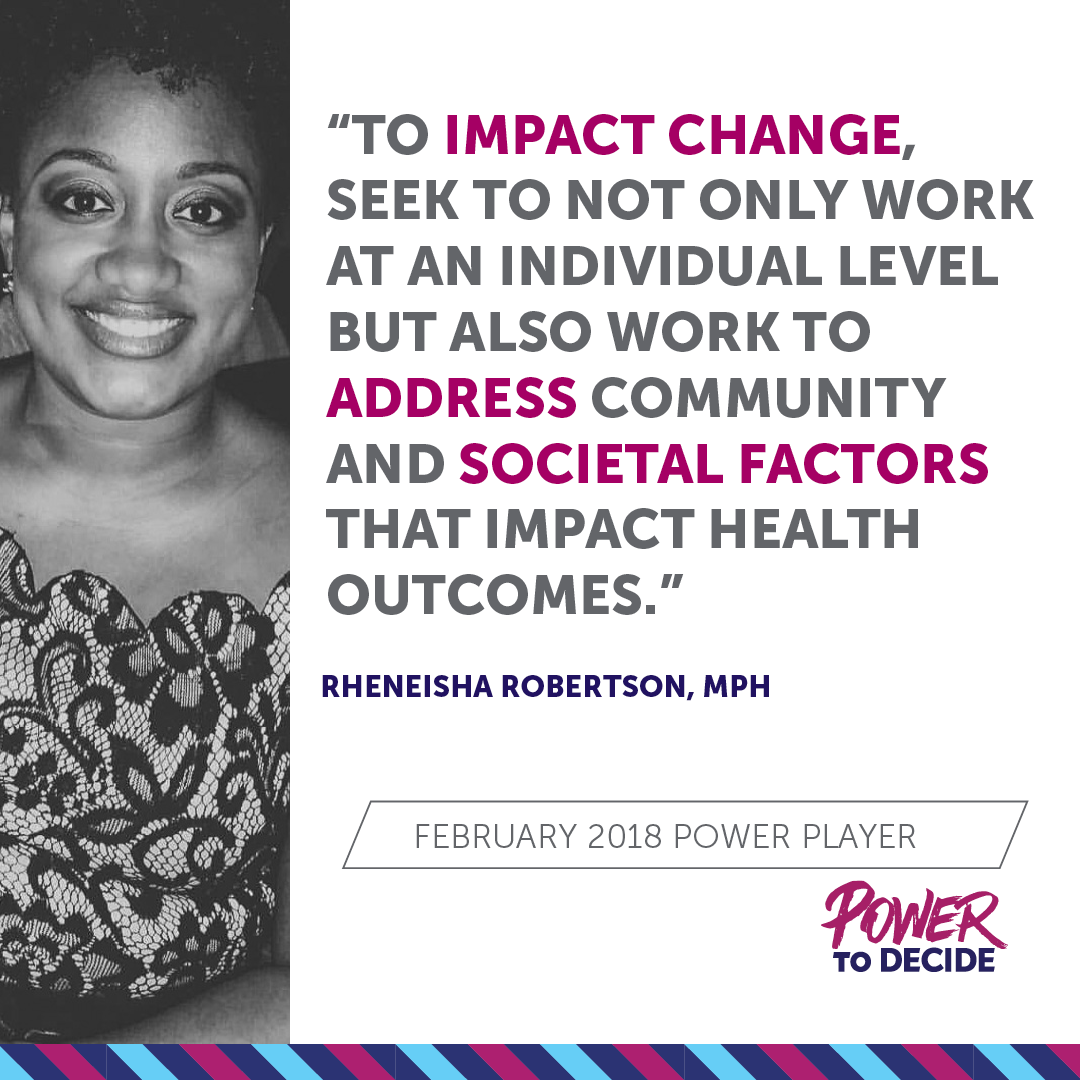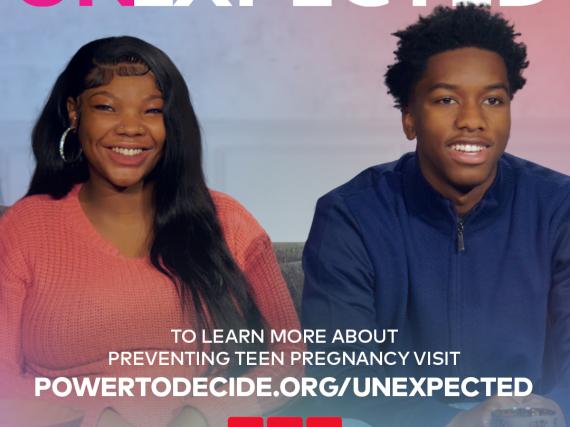February 2018 Power Player
Here at Power to Decide, we are committed to uplifting the many individuals who are on the ground doing the work that matters most. Each month we'll highlight an individual or organization who is championing the effort to give young people the power to decide if, when, and under what circumstances to get pregnant. Check out this month's Power Player profile.
Rheneisha Robertson
Chief Program Officer, Institute of Women & Ethnic Studies
Q1: What work have you done to ensure that young people have access to high quality sexual health information or high quality contraceptive services so that they can decide if, when, and under what circumstances to get pregnant?
A1: Over the past 17 years of my public health career, I've worked in multiple capacities to ensure that young people have access to quality sexual and reproductive health information and services. As a lead counselor with the Illinois Teen Parent Services Program, I began my career working with young parents in helping them achieve their educational and career goals, through the provision of social supports. This gave me the opportunity to ensure young parents had access to sexual health information and contraceptive services so that they can not only decide if, when and under what circumstances to get pregnant, but also address the myriad of factors and determinants impacting their health and well-being. Most of my experience in this area has been in coordinating and directing adolescent sexual health and risk reduction programs that provide young people access to comprehensive sexual health education, advocacy training and leadership development, through a number of dynamic strategies to engage young people and ensure their access to quality, comprehensive sexual health information, and opportunities to build skills so that they can make healthy decisions related to their sexual and reproductive health. Now, as Chief Programs Officer at the Institute of Women and Ethnic Studies (IWES), I have the incredible opportunity to utilize my years of experience and further shape our organization's adolescent & youth sexual reproductive health, rights and justice work.
Q2: How did you get started in your field? What is your driving force?
A2: I've always been passionate about working with and on behalf of communities of color, particularly women and youth, working to ensure access to the resources and tools they need to thrive physically and emotionally. My training and educational background is in Maternal and Child Health Education and Health Communications, and I was fortunate to begin my career working with young women of color at IWESto provide them with quality sex education, risk reduction and prevention information and skill building. My driving force is that I have the privilege to play a small role in building young people's confidence, knowledge and skills related to their overall health and well-being.
Q3: What advice would you give to someone looking to impact change in the field that you currently work in?
A3: Understanding the context in which people live—their experiences of trauma, social conditions, community and interpersonal factors that contribute to their ability to thrive physically and emotionally—is critically important. In order to impact change, one must engage in this work with that lens, and seek to not only work at an individual level but also work to address those community and societal factors that impact health outcomes.
Q4: Why should someone care about ensuring that all people—regardless of who they are or where they live—have access to the information and contraception they need to live their best life story?
A4: I believe strongly that it is a right, not a privilege that all people have access to the information and contraception they need to live their best life story. Unfortunately, social, cultural and political factors often dictate who has access and who does not. One of my favorite quotes, “Injustice anywhere is a threat to justice everywhere. We are caught in an inescapable network of mutuality, tied in a single garment of destiny. Whatever affects one directly, affects all indirectly." Dr. Martin Luther King's words fittingly describes why this work is so important to me, and why we should all care about ensuring access for all people. It is an injustice to deny anyone—regardless of who they are and where they live—this human right.
Q5: Is there a highlight about your work in conjunction with our organization that you’d like to share?
A5: Over the years, I've greatly benefited from the resources that Power to Decide has offered. I look forward to future opportunities to learn and share, and expand access for all young people to the information and services they need to live their best life story.
*Responses have been edited for clarity.



